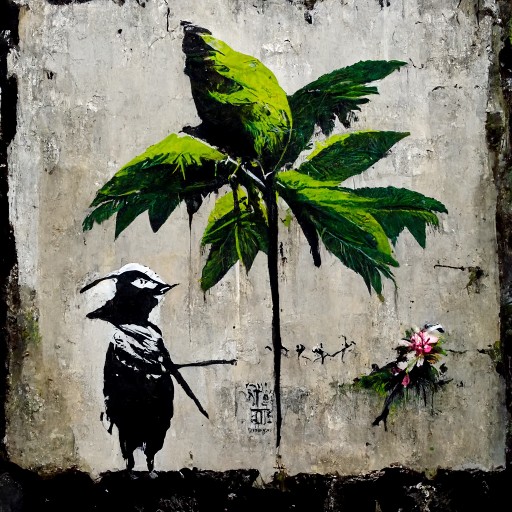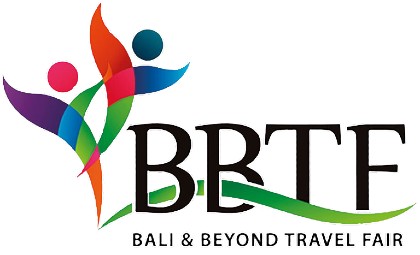No products in the cart.
Save yourself some time and money
We’ve condensed hours of advice and facts into a five minute read that will save you a lot of time and hundreds of dollars. All you have to do is sit back, relax, and enjoy your time in Bali.
In today’s fast-paced world, getting away from the daily routine or pressures of work can be a welcome relief. Travel agencies and tour guides have set up shop in tropical destinations where tourists can purchase a “holiday in a box” because most of us only get a short break to relax. You can expect a well-defined process throughout your time here with no unanticipated twists or turns. Those who are pressed for time will appreciate this convenience.
Whereas other tourists prefer to have more flexibility and experience Balinese culture on their own terms. There is nothing worse than being rushed on your valuable time off. Slow travel gives you the freedom to discover at your own pace.
You can trust that the recommendations we make for lodging, sightseeing, and other experiences will be given to you without bias. Simply put, our goal is to make your time in Bali more enjoyable by supplying you with the most trusted information and advice.
Handpicked, straight from the island, with advice from real visitors, expats, and locals.
Visa, Passport, Travel Regulations
- Due to the pandemic a lot of visa and travel regulations have changed. Make sure you are well informed and up-to-date, particularly if you want to stay longer than 30 and 60 days. Visa Regulations & Travel Regulations for Bali
- Your passport must be valid for 6 months when arriving! Otherwise you won’t be allowed to enter Bali (happens to quite a few)! There are NO EXCEPTIONS.
- Temporary Passports, Emergency Travel Documents are not valid to enter into Indonesia
- One page of the passport must be empty for the visa stamp
- Keep your boarding pass when you arrive, you MIGHT have to show it to the immigration officer
- Immigration officers might ask for a return ticket. They are not really strict with this, but it could happen.
Prices in Bali - Cost of Traveling
- Most prices are subject to tax (11%) and service charge (6-11%) for hotels and restaurants. Check the menu in the restaurant if the prices are included or added later to the bill.
- Tipping is optional but appreciated (some tourist venues charge a 10% service fee, so check your bill to avoid double-tipping).
- Bali is a great place to visit for the money. Nothing you buy or do, from fast food to Fine Dining, can possibly go wrong.
- Homestay or Luxury Hotel, prices are very reasonable for what you get.
- Homestays and dorm rooms can still be found for only US$15-20 per night.
- New budget hotels offer clean rooms with AC for US$25+
- Four-star hotels and resorts often charge between US$70-120 per night.
- Private, serviced Villas are a great alternative offering amazing value for money and range from US$150 to …. several thousand.
- Most restaurants offer reasonably priced meals for US$3 to $7. A healthy, freshly prepared meal can be had in a Warung or on the street for as little as US$1.50.
- Imported wine and liquor are more expensive than domestic alcoholic beverages (due to import taxes).
- Room Payment: Even if prices might be quoted in USD online, the bill will be converted into IDR first. The Indonesian Rupiah is the currency for everything here, you cannot pay in other currencies directly.
Food & Culinary Delights
- Unlike Bali’s uncertain quality of its tap water, ice quality is regulated by the government.
- Vegetarian and healthy food options are on the rise, epicenter Ubud & Canggu. Try the detox smoothies.
- Roof Top bars and Beach Clubs are getting more popular, for good reasons. Canggu is the place to be.
- Bali has one of the most incredible variety of choices when it comes to eating out. You can find everything.
- Foreigner-friendly supermarkets stock “the good stuff,” such as high-quality cheeses and dairy products from around the world ($$$$$$).
- The Go-Jek App, has the option to let you order food and get it delivered to you (GoFood)
Choosing your Accommodation
- Never assume a location’s listing is correct. Always double-check the map or the details. The “Kuta Hotel” may or may not be in Kuta, a Suite may or may not be a Suite, and The Beach Hotel may be further away from the beach than it shows.
- Location, Location, Location. Study the map carefully. Determine how long it would take you to walk from point A to point B. If there are no convenient roads or access to the beach from your hotel, you may have to walk quite a distance.
- Every Destination is very different in Bali. Try to learn about the areas first, before booking rooms.
- If you want to stay in one of the less expensive hotels or homestays, we recommend booking through one of the booking websites (e.g., our partner booking.com). This way, if the property you book is in in bad condition because of neglect during the pandemic, you may be confident that your rights as a consumer will be protected.
Main Destinations
The Main Bali Destinations
- Kuta’s wild nightlife scene draws young Australians.
- Canggu is the new hotspot. Something to offer everyone. Beach clubs, surfer town, chill vibe, tofu burgers and yoga.
- Seminyak’s cocktail bars and nightlife are more refined than Kuta’s raucous clubs.
- Ubud is more laid back, art, small shops, great food, healthy life style, yoga. Busy during the day due to day-tourism.
- Lembongan and Ceningan island is easy to reach and, like Bali 30 years ago, offers greater comfort. Paradise
- Sanur is more tranquil and upper-class, with calm beaches, superb beachside dining (pantai sindhu), and live music.
- Nusa Dua is a 350-hectare enclave with 20 five-star resorts. Deluxe spas, exclusive golf courses, and world class convention centers.
- Jimbaran offers seafood restaurants and BBQ right on the beach (busy, fresh, and delicious) every night.
- The western and southern coasts of Bali’s Bukit Peninsula in the south (Ungasan, Uluwatu, Pecatu). Padang Padang Beach, Bingin Beach, Dreamland, Balangan… are all surfers’ paradises that are still a little off the beaten path, with white sandy beaches and steep cliffs. Some of the most amazing hotels and villas may be found here.
- Amed is where the majority of scuba divers stay and where you can dive among the famed Japanese shipwrecks. Beach Clubs on smaller, more isolated beaches provide something for everyone.
Money and Payments
- Visa and Master Card are the most accepted cards. AMEX not so much!
- Credit Card payment in hotels, most restaurants and shops is possible these days. But the more remote, the less likely.
- Expect a surcharge of 2 – 4% is applied when using credit cards in small shops, restaurants, guesthouses, because the card companies take up to 3% off the bill from the vendor, which can be a lot for small businesses.
- Street vendors: they usually only accept cash and best in IDR
- You can pull money from ATM easily (in remote areas like Lembongan, you might not find a working machine).
- The main currencies such as US$, AUS$, EUR, GBP, YEN, NZD, SGD will be accepted and changed almost anywhere.
- Make sure to go to official money changers. DON’T USE HOLES -IN-THE-WALL money changers. Many of them are great tricksters. If the place looks dodgy, it most likely is.
- Payment is done in IDR (Indonesian Rupiah).
- Bring some cash, your credit card and a normal bank card.
- Max amount you can withdraw in one go at an ATM is either 1.250.000 – 1.500.000 (machine with a 50.000 sticker) or 2.500.000 – 3.000.000 (machines with a 100.000 sticker).
- Pulling from an ATM you will be charged a fee between 2 and 5 US$ depending on the bank. But exchange rates are good, which makes it roughly the same, as if you bring your cash and change it here at a money changer
- Traveler cheques are a memory of the distant past
- Bargaining with street vendors who don’t display prices is a must. But it’s also nice to respect and value their work, effort, and services, and to pay fair prices. Live and let live!
Traffic and Transportation
- Left-hand traffic in Bali – kind of ;-). Call it creative driving. More IMPORTANT Tips on handling traffic can be found in link below.
- Scooter rental costs US$5-15 per day. Safety and reliability above all. Always overpay rather than underpay. Avoid cheap scooter rentals. Keep the motorbike rental shop’s phone number. You may need it. Proper scooters and motor bikes with insurance and 24/7 service can be found here
- A car with a driver for 8-10 hours costs between USD$40 and $70 a day. Always inspect the vehicle. And check that they have a driver’s license and authorization to drive (izin, insurance issues).
- To self-drive you need an international driving license, also for a motor scooter (car license is enough for 125-150cc bikes)
Forgot your IDP? No worries, you can get an international driver’s permit in a matter of minutes by clicking here! - GoJEK and Grab are the best alternatives to renting a scooter. Unfortunately, some areas are so against this that drivers fear being bullied.
Internet, SIMCARDS and Communication
- Even in more remote areas, mobile data connections typically hold up well. Get Simpati Service from Telkomsel in Bali (see below)
- Avoid the hassle of buying a SIM card at the airport or from a stranger in a shady corner store by ordering your tourist SIM card and Internet data package in advance online.
- Today, free Wi-Fi is available at most cafes, eateries, and retailers.
- Keeping in contact with loved ones back home while on the road has never been easier or more affordable thanks to services like WhatsApp, Skype, and Facetime.
- Hotels usually provide free Wi-Fi in public areas and rooms.
- Plenty of co-working spaces and digital nomad friendly restaurants and cafes.
- To get the best route, Google Maps or Waze are must-haves while driving. Make sure you top up on data for this.
Activities, Things to Do, Tips
- Bali (Menjangan, Nusa Penida, Nusa Lembongan, Nusa Ceningan) is a scuba divers paradise. More than 100 dive centers and great dive spots
- Bali may have the most spas.
- Full-body massage begins at $7/hour, although 5 star hotels charge $60+/h.
- Nail salons, massage parlors, and even high-end cosmetical centers are accessible.
- Kuta, Legian, and Seminyak beginner surfing. Uluwatu pros, Canggu advanced
- Bali produces waves for all abilities. Many accessible surf spots
- Top Temples: Uluwatu, Tanah Lot, Besakih, Tirta Empul
- So many activities: climbing a volcano, canyoning, downhill cycling, or hiking through traditional villages will bring you closer to nature and Balinese culture.
- Tour Ubud. It’s unique.
- Bali is a shopping paradise for art, handicrafts, oils, essences, garments, shoes, furniture, and accessories.
- Day of Silence, Nyepi, no hotel check-in or check-out. Island and airport closed!
- Nusa Penida and Lembongan have manta rays and mola mola.
- Bali wedding planners provide full-service, and dreamy ideas.
- Don’t smile at monkeys in the monkey forest or temples—showing teeth is a sign of aggressiveness.
- Benoa has watersports (jet ski, para gliding, water ski etc).
- Lembongan, Ceningan, and Nusa Penida, 45 minutes by boat from Sanur, are worth 2-4 days. PARADISE.
Safety, Etiquette, Does & Don'ts
- The rain makes the sidewalks and roads dangerously slick.
- Nighttime sidewalk holes can be large and deep.
- Scooters are Bali’s best and most dangerous activity. Never exceed 40km/h.
- Traffic fatalities are common. Main causes: drinking, drugs, overconfidence, stupidity, lack of practice, traffic ignorance, recklessness.
- Roadside debris is abundant.
- While driving, expect to be the target of various projectiles from cats, dogs, and chickens, as well as unskilled and unlicensed drivers
- Never drink and drive, if you want to leave Bali in one piece.
- Good swimmers have drowned in Bali due to dangerous sea currents that change with weather and wind.
- Night swimming—especially under the influence of alcohol and drugs—may seem fun, but it will likely be your last stop in Bali.
- The ocean is unpredictable. Watch rip currents, undertows, and big waves in general. Watch your kids at all times.
- Just say no to illegal drugs. In Indonesia, drug possession, trafficking, and manufacturing are all treated as major crimes.
- Though crime and scams are uncommon in Bali, visitors should still be careful with their belongings.
- Prostitution is illegal on Bali
-
Bali has roughly 28,376 HIV cases, sixth in Indonesia.
- In the rowdier “nightlife hotspots” of Kuta and Legian, the security staff are often part of the problem rather than the solution, so party carefully.
- Although you could witness a native bathing topless in a river, it is against Bali and Indonesian culture to go topless in public.
- Even though the Balinese are used to it, wearing a thong or gstring bikini when in “town” may be considered culturally rude.
- Never treat public spaces like a toilet, a boxing ring, or a sound testing lab, especially if you’ve been drinking.
- The head is an Indonesian’s purest part and should never be touched.
- Dudes, please wear a t-shirt in shops and restaurants!
- Mosquito nets and repellent are best. Dengue fever exists here.
- Like everywhere else, the red light district and nightlife areas attract criminals, so stay alert, don’t drink too much, and stay with friends if you can.
- Prevent card fraud by shielding prying eyes and recording devices with your hand or wallet whenever you enter your PIN.
- Global rule. If a location appears sketchy, avoid it and go elsewhere.
Environment, Responsibilities & People
- The island of Bali is quite vulnerable. Waste management, water supply, and traffic congestion are all major issues, just as they are in any growing country. Support the Balinese by being a responsible tourist.
- Try to take short showers and avoid wasting water.
- Your trash either ends up in landfills or the sea and pose major health and environmental risks.
- Plastic and trash from packaging all our consumables is problem no. 1. Avoid plastic bottles, straws, plastic bags when shopping at least.
- Most workers you will meet have a salary of around 150 to 250US$ per month and work hard for their money, travel long distances and share their income with other family members.
- Balinese are super friendly and welcoming. They are also proud and are happy if you respect their customs and island.
- Being angry and shouting is not appreciated. If you have a complaint, be polite, calm and insist on a solution in a friendly manner if you wish to get any result.
- Indonesian Glove cigarettes are called Kretek and are smoked everywhere
Weather & Climate
- TROPICAL CLIMATE
- Rainy season, October to February, Dry season March to September
- Best time to come here: Apr – Jun & Sep, Oct.





























